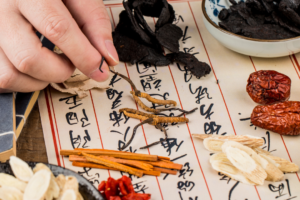What to Look for in a Traditional Chinese Medicine School: A Student’s Guide
Choosing the right Traditional Chinese Medicine (TCM) school is essential for those aiming to enter a profession in acupuncture and herbal medicine. With various programs and institutions available, it’s important to know what to consider in selecting a program that matches your educational and career goals. Here’s a guide to what to look for in a TCM school to set a strong foundation for your future practice.
Accreditation and Reputation
Accreditation is vital when evaluating any TCM school, as it ensures that the program meets established standards in education and clinical training. Look for accreditation from the Accreditation Commission for Acupuncture and Herbal Medicine (ACAHM), as this is required for licensure in many states. Alongside accreditation, a school’s reputation within the TCM community is a reliable indicator of its quality. Alumni success stories, testimonials, and the school’s involvement in the TCM field are all useful metrics to consider.
Comprehensive Curriculum and Specialization
A well-rounded curriculum is key to building competence in both acupuncture and Chinese herbal medicine. Essential subjects should include core TCM theories, biomedicine, acupuncture techniques, herbology, and patient management. Many top schools also offer specialized coursework, allowing students to explore focus areas such as integrative medicine or pediatrics within TCM. Opting for a program that includes advanced modules on specific interests can deepen your expertise and better prepare you for clinical practice.
Clinical Training and Real-World Experience
Clinical experience is fundamental to TCM education. When evaluating programs, investigate the hands-on training opportunities available. Quality schools offer extensive clinical hours in diverse settings, often at on-campus or affiliated clinics where students can work directly with patients under supervision. Schools with established partnerships in hospitals, private practices, or community health centers provide valuable experience in varied healthcare environments. Seek programs that prioritize patient care and offer structured mentorship during clinical training.
Faculty Expertise and Student Support
The expertise of a school’s faculty significantly influences the quality of education you receive. Look for faculty members who are not only experienced practitioners but also active in research or specialized fields within Traditional Chinese medicine schools. Faculty involvement in research and publication is often a good sign of their depth of knowledge. Beyond academics, student support services such as counseling, tutoring, and career guidance are critical. A strong support network enhances your learning experience, ensuring you’re well-equipped to succeed.
Licensing Preparation and Post-Graduation Support
Securing licensure after graduation is crucial, and the right school can help you prepare effectively for licensing exams, such as the National Certification Board for Acupuncture and Herbal Medicine (NCBAHM™, formerly known as NCCAOM) exams. Some schools offer comprehensive exam prep resources, including practice exams and review sessions. Also, explore the school’s post-graduation support services. Schools with active alumni networks and career placement services can help you transition into professional practice and connect you with job opportunities. of Acupuncture and Chinese Herbal Medicine (DAcCHM)
Practical Considerations: Cost, Location, and Flexibility
The financial investment for Traditional Chinese medicine school education varies widely, so research tuition costs, scholarships, and financial aid options. Also, consider the school’s location, as it impacts both lifestyle and access to clinical opportunities. Some programs offer flexible schedules, including part-time or evening classes, which can benefit students balancing other commitments.
Conclusion: Your Path with Colorado Chinese Medicine University
Selecting a Traditional Chinese medicine school is about finding a program that not only educates but also prepares you for a rewarding career in acupuncture and herbal medicine. At Colorado Chinese Medicine University® (CCMU), we are committed to nurturing students through comprehensive programs, including the Master of Acupuncture (MAc), Doctor of Acupuncture (DAc), Master of Acupuncture and Chinese Herbal Medicine (MAcCHM), Doctor of Acupuncture and Chinese Herbal Medicine (DAcCHM) and the Doctor of Acupuncture and Oriental Medicine (DAOM). With a focus on advanced clinical training, research, and innovative Qi-based TCM methodologies, CCMU offers a robust foundation for future practitioners dedicated to holistic health and wellness.


